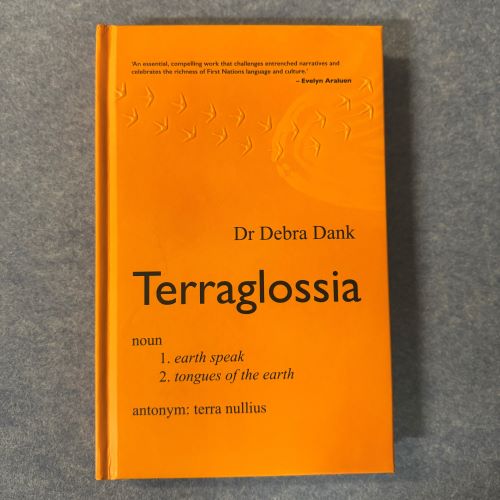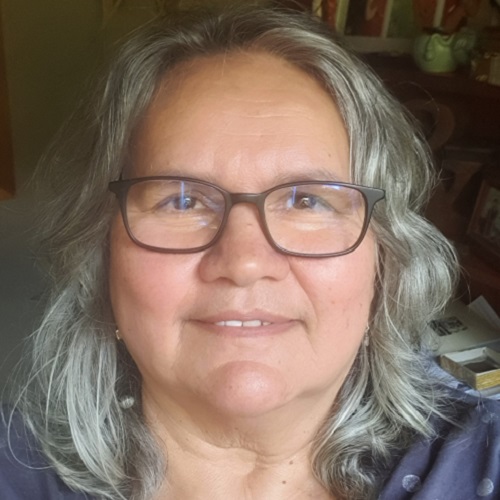
Award-winning author and University of South Australia academic Dr Debra Dank has unveiled her latest work, Terraglossia, a powerful response to colonial oppression that invites all Australians to reimagine how we engage with the world's oldest living culture.
Dr Dank, a Gudanji/Wakaja and Kalkadoon woman from the Barkley Tablelands in the Northern Territory, launched the compelling follow-up to her acclaimed memoir, We Come With This Place, to challenge entrenched narratives and celebrate the richness of First Nations language and culture.
The title of the small hardback, Terraglossia, is a word coined by Dr Dank herself in response to the colonial notion of terra nullius - a concept used by British colonisers to assert the land of Australia was unoccupied and available to claim and settle.
"There is no result to be found if you Google the term 'terraglossia' and you won't find it in a dictionary yet, or perhaps not ever," she writes in the book.
"It is a word I have coined because in making the untruth visible, populating the great Australian silence with the sounds that have been yarning here for thousands of years, we must identify the words that illustrate or define Aboriginal and Islander ways of knowing, being, doing and seeing as defined by us through our concepts and not merely non-Aboriginal concepts massaged into something that is close enough."
Dr Dank, who is based on the Sunshine Coast, has spent 40 years working in primary, secondary and tertiary education roles in urban and remote areas across Queensland, New South Wales, Victoria, South Australia and Northern Territory.
She also helped establish the Indigenous Literacy Foundation, a charity dedicated to improving literacy among Aboriginal children and young people, especially in remote and isolated communities.
Throughout the new book, Dr Dank explores how an uncritiqued English language - evolved from a comparatively young language literally on the other side of the world - continues to silence First Nations' voices and suppress more-than-ancient knowledges.
She draws on several experiences throughout her childhood and teaching career where she has witnessed firsthand the impact of language loss and cultural disconnection.
"I once worked with a non-Aboriginal teaching colleague who was from a non-English speaking European ancestry. I entered her classroom and found her shaking a small child and saying most aggressively, 'You will not speak that gobbledygook in my classroom.' The child, five years old, had spoken their own Aboriginal language," Dr Dank says.
"In my almost 40 years of working in a range of educational institutions and contexts throughout much of Australia, I have never once by connotation or by explicit statement, heard anyone voice disquiet about English speaking children speaking their own language in the classroom.
"It's time to disrupt a very erroneous narrative that started here when Cook claimed Country that was never his or open for claiming. We need to begin the business of being able to at least communicate a little more effectively."

Dr Dank's first book We Come With This Place, a memoir of sorts of her Gudanji/Wakaja family's connection to Country and culture, won numerous awards in 2023, including four NSW Premier's Awards, three Queensland Literacy Awards and the Australian Literature Society Gold Medal.
"I'm still a bit befuddled and bemused by the whole thing," she says. "I didn't set out to write books, I'm perplexed by the success of it but I am deeply honoured."
Dr Dank has already started work on her third book, expected to hit the printers before the end of 2025.
Terraglossia, published by Echo Publishing, is available online and at major Australian booksellers.






